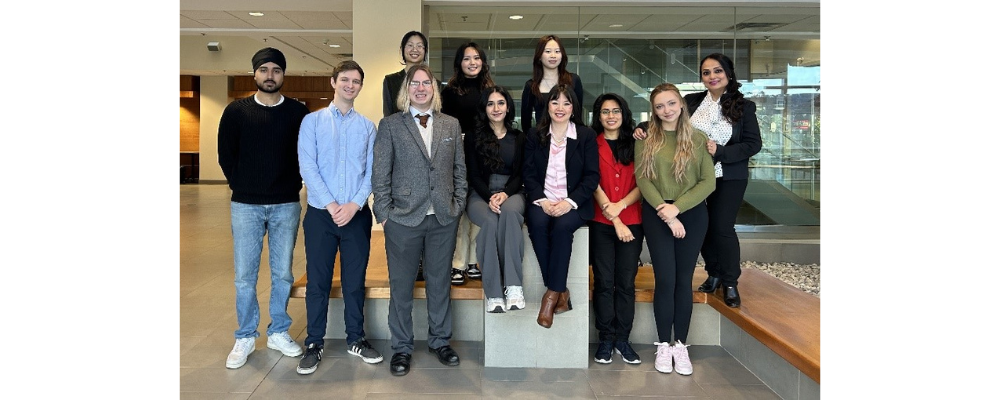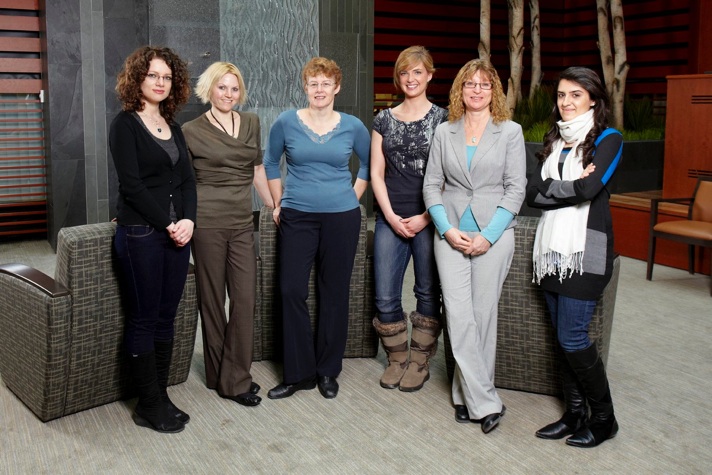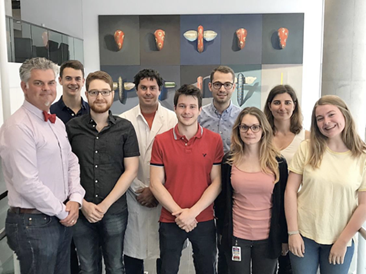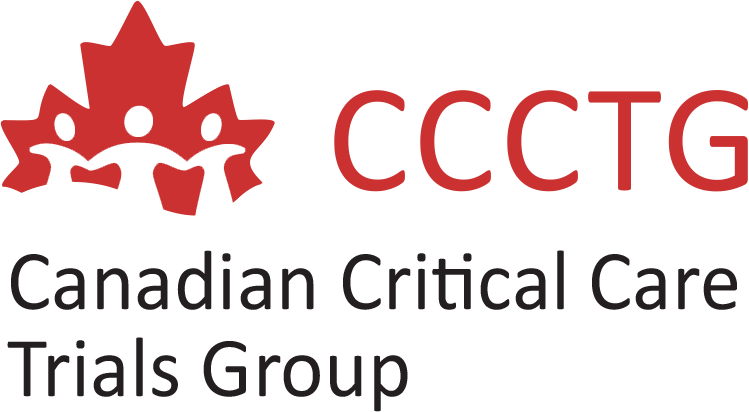Liaw Lab
McMaster University
Thrombosis & Atherosclerosis Research Institute (TaARI)

Our Research Program
Research in the Liaw Lab focuses on the biological crosstalk between microbial infection, innate immunity, and blood clotting, a process termed “immunothrombosis”. Our approach is to integrate lab-based studies with translational/clinical research project to better understand how immunothrombosis contributes to morbidity and mortality in critically ill patients. Our integrative research approach includes studies at the levels of cell biology, biochemistry, animal models, and translational studies of ICU patients. We are also engaged in CCCTBG and CCCTG projects to increase biosampling-based translational research capacity in Canada.
Current Projects
Our research is funded by the Canadian Institutes of Health Research (CIHR), the Canadian Venous Thromboembolism Research Network (CanVECTOR) and the Canadian Network of COVID-19 Clinical Trials Networks. Current research projects include:
- Phase 1 clinical trial of intravenous DNaseI in ICU patients with sepsis
- Translational studies of heparin in sepsis-associated immunothrombosis
- Mechanisms of immunothrombosis in COVID-19 patients
- Impact of blood clotting capacity on the host response to infection
- Increasing translational research capacity in academic and community sites in Canada
► The Liaw Lab on PubMed (offsite link)
![]()
Lehmann Lab
Dalhousie University
Microcirculation Diagnostics and Applied Studies (MiDAS) Research Group

Our Research Program
Professor Lehmann’s research interests include the immune consequences of local and systemic inflammation (e.g., sepsis, stroke), intravital imaging of the microcirculation in animal models and clinical studies, and the development of new pharmacological approaches for inflammation and infection.
Current Projects
Our research is funded by the Canadian Institutes of Health Research (CIHR), the Natural Sciences and Engineering Research Council (NSERC), Invest Nova Scotia and MITACS. Current research projects include:
- Anti-inflammatory effects of cannabinoid type 2 receptor agonist HU308 in endotoxin-induced acute lung injury
- Immunomodulatory cannabinoids for neuroprotection and subsequent improvement of immune dysregulation following experimental stroke
- Beta-Caryophyllene: a novel adjunct therapy for urinary tract infections
► The Lehmann Lab on PubMed (offsite link)
![]()
Bourque Lab
University of Alberta
The Bourque laboratory uses rodent models and employs integrative and molecular approaches to investigate two broad areas of cardiovascular physiology. The first focuses on elucidating the mechanisms by which stressors (iron deficiency, sepsis) during gestation and early infancy affect growth and development of the fetus/neonate, and in turn predispose the offspring to lifelong health complications. The second focuses on identifying mechanisms underpinning the development of sepsis-induced cardiac dysfunction and acute kidney injury.
Current Projects
Our research is funded by the Canadian Institutes of Health Research (CIHR), Sepsis Canada, the Canada Research Chairs Program, and the Stollery Children’s Hospital Foundation and the Alberta Women’s Health Foundation through the Women and Children’s Health Research Institute. Ongoing projects include:
- Mitochondrial dysfunction in sepsis-associated organ dysfunction
- Acute and persistent cardiometabolic effects of late-onset neonatal sepsis
- Maternal and fetal adaptations to iron deficiency in pregnancy.
- Preclinical multi-center studies on sex-dependent outcomes in sepsis
► The Bourque Lab on PubMed (offsite link)
![]()
Hutchison Lab
University of Toronto
Sick Kids Research Institute

Professor Jamie Hutchison has led multiple high-impact studies of brain injury and critical illness in children and adults. In these basic science, translational biology, and therapeutic studies, he and his teams have uncovered molecular and microvascular mechanisms and helped guide clinical management. His primary focus has been cerebral ischemia, cardiac arrest, traumatic brain injury (TBI), and lung injury, and his collaborative studies include status epilepticus, transfusion medicine and septic shock. The current goals of Dr. Hutchison’s research are to discover and establish clinical, biochemical tests for use in cardiac arrest and TBI and to prove the clinical utility of a neuroprotective drug in cardiac arrest.
He has been awarded 70 peer-reviewed grants, published over 120 peer-reviewed papers, and given multiple presentations and media interviews nationally and internationally. He is the past chair of the Canadian Critical Care Translational Biology Group, the current Co-chair, with Dr. Alexis Turgeon, of the Canadian Traumatic Brain Injury Research Consortium (CTRC), funded by the Canadian Institutes of Health Research (CIHR), and a member of the International Initiative for Traumatic Brain Injury Research. More than 20 graduate students and post-doctoral research fellows have been trained in the Hutchison laboratory, and multiple trainees and young clinician-scientist investigators have benefitted from his mentorship. Dr Hutchison received the 2023 Distinguished Lecturer Award in Critical Care Sciences from the CIHR Institute of Circulatory and Respiratory Health and the Canadian Critical Care Society. He is currently advocating to designate moderate to severe TBI as a chronic condition in Canada on behalf of patients and their families, the CTRC and Brain Injury Canada.
![]()
Lalu Lab
Ottawa Hospital Research Institute
Blueprint Translational Research Group

Our Research Program
The Blueprint Translational Research Group was co-founded by Dr. Manoj Lalu and Dr. Dean Fergusson at the Ottawa Hospital Research Institute. Significant day-to-day leadership within the group is also provided by Madison Foster (Project Manager) and Dr. Forough Jahandideh (Research Associate). We focus on improving the preclinical-to-clinical translational pathway through a multidisciplinary lens. Our lab focuses on knowledge synthesis (systematic reviews and meta-analyses), patient engagement, and preclinical multicenter studies. These programs of research encompass both “dry” lab and “wet” lab projects, with a specific focus on efficiently coordinating multicenter preclinical studies across Canada.
Our critical illness studies focus on investigating sepsis and acute lung injury using murine models. One initiative involving many members of the CCCTBG is the National Preclinical Sepsis Platform (NPSP). This multilaboratory study aims to optimize laboratory models of sepsis, improve translatability of preclinical studies, and address critical knowledge gaps in the field.
Current Projects
Our research is currently funded by a number of sources, including Sepsis Canada, the Canadian Institutes of Health Research (CIHR), New Frontiers in Research Fund (NFRF), Stem Cell Network, and the UK Research and Innovation. Current research projects relevant to the CCCTBG include:
- Advancing the development of a standardized murine model of sepsis while exploring biological sex differences through multicenter studies
- Evaluating the influence of biological sex on acute lung injury through multicenter studies
- Exploring and enhancing patient engagement in preclinical laboratory-based research
- Exploring the therapeutic potential of cell products to reduce features of lung injury
- Conducting preclinical systematic reviews relevant to critical illnesses
![]()
Cepinskas Lab
The Vascular Inflammation Laboratory
Western University
Centre for Critical Illness Research, Lawson Health Research Institute

Principal Investigator
Professor Gediminas (Gedas) Cepinskas (DVM/PhD)
Laboratory Motto
“Towards an Inflammation-free body!”
Description of primary research
Research at the Vascular Inflammation Laboratory focuses on pathophysiology of systemic disorders such as sepsis/COVID-19, multi-organ trauma and ischemia-reperfusion injury, with the prime focus on inflammatory activation/dysfunction of organ-specific vascular endothelial cells.
In parallel, contribution of inflammatory cells (e.g., neutrophils) to vascular injury/dysfunction is also investigated.
Cellular/molecular mechanisms of disorders mentioned above are investigated in the preclinical models employing both experimental animals and primary organ-specific (e.g. cerebrovascular, pulmonary, or skeletal muscle) vascular endothelial cell cultures or vascular endothelial cell-neutrophil co-culture systems in the presence of the “blood flow” conditions in vitro.
Gaseous transmitters (e.g. carbon monoxide / carbon monoxide releasing molecules; CORMs) are investigated as potential modulators/therapy of systemic inflammation.
Current Projects
- “Human COVID-19 Endotheliopathy: Identification of Immuno-Thrombotic Mechanisms” (HSFO-funded)
- “Mimicking Vascular Endothelial Cell In Vivo Environment in Cell Culture” (NSERC-funded)
- “Microvascular Dysfunction in Compartment Syndrome: Therapeutic application of Carbon Monoxide-Releasing Molecules (CORMs)” (HSFO-funded)
- Sepsis and Proteolytic Injury to the Cerebrovascular Endothelium: Modulation by Novel Carbon Monoxide-Releasing Molecule (CORM-401) (Lawson Internal Research Funding)
► Laboratory web site URL (offsite link)
► The Cepinskas Lab on PubMed (offsite link)
Current members of the laboratory
Eric Patterson (PhD; Research Associate)
Inga Stepelyte (Research Assistant)
Enis Cela (Graduate student)
Mark Zhao (Undergraduate Student)
Douglas D. Fraser (MD/PhD; Clinical Scientist)
Collaborative studies
- COVID-19, Sepsis, Traumatic Brain Injury, Blood-Brain-Barrier dysfunction, Diagnostic Biomarkers, COVID-19 Inflammatory Blood Biomarkers
Drs. Abdel Lawendy and Aurelia Bihari-Dencev
- Carbon monoxide releasing molecules (CORMs) in treatment of Limb Compartment Syndrome
Drs. Partick Luke and Alp Sener
- Carbon monoxide releasing molecules (CORMs) in kidney transplantation
- Cerebrovascular outcomes in ischemic heart disease patients undergoing cardiac rehabilitation

Dr. Alison Fox-Robichaud's Lab
David Braley Research Institute
Thrombosis and Atherosclerosis Research Institute
- Alison Fox-Robichaud; MSc, MD, FRCPC (Int Med, Critical Care)
- Tracey Reynolds, Administrative Assistant
- Paulina Kowalewska, PhD*
- Momina Khan, PhD*
- Peter Grin, Summer Student
- Michael Xu, Summer Student
- Christine Wardell, Summer Student
The Calvin, Phoebe, and Joan Snyder Translational Laboratory in Critical Care Medicine
The University of Calgary Health Science Centre
- Paul Kubes; PhD
- Caroline Léger, PhD
- Patrick Tam, Research Assistant
Translational Research Centre
London, Ontario
The Translational Research Centre supports local, national and international projects through the collection, processing, storage and shipment of biological specimens for research purposes. Hypotheses are investigated with greater ease and rapidity by linking critical care clinicians and scientists focused on improving therapies and remedying disease in ICUs. Please visit our website for a full listing of tissues collected, services provided and current projects as well as downloads and information about our clinical database.
- Douglas D. Fraser, MD, PhD, FRCPC, TRC Director
- Carolina Gillio Meina, PhD, TRC Research Associate
- Jennifer Devlin, Adminstrative Coordinator
- Dominic Langley, BSc, BA, cMBA Business Manager

Dr. Jean-François Calhier's Lab
Macrophages are the central element of the laboratory. Deciphering the role of macrophages during inflammatory processes clearly define our interests using translational research models (using both clinical and basic science approaches). Not only we are interested in the mechanisms involved in macrophages reprogramming in response to the cues generated from inflammatory environments (injury/infection), but we are also studying the subsequent impact of macrophages on other immune cells such as neutrophils and lymphocytes. Macrophage are plastic, they can adopt either a pro- or anti-inflammatory phenotype. We are currently studying how macrophages contribute to various inflammatory diseases found in the intensive care units and how they are affected by their treatment from subarachnoid hemorrhage, brain death, transplantation, fulminant hepatitis to cancer. This will give us the opportunity to identify how to reprogram macrophages to modulate the inflammatory response as we desire to help our patients.


